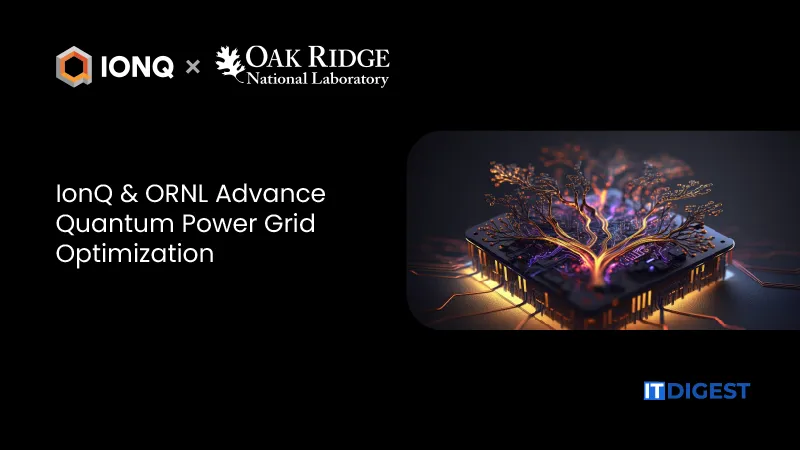IonQ, a pioneer in commercial quantum computing and networking, has announced a significant advancement in applying quantum technology to energy grid optimization. In collaboration with Oak Ridge National Laboratory (ORNL) and the U.S. Department of Energy (DOE), IonQ has successfully demonstrated how a hybrid quantum-classical computing approach can effectively address the Unit Commitment problem a core challenge for power grid management.
The Unit Commitment problem involves optimizing the scheduling of power generation resources to meet electricity demand at the lowest possible cost. As energy systems grow in complexity incorporating both dispatchable sources like nuclear, gas, and hydro, and intermittent renewables such as solar and wind this task becomes increasingly difficult to solve using traditional computing methods alone.
To tackle this challenge, IonQ and ORNL deployed a hybrid solution that merges the power of IonQ’s 36-qubit Forte Enterprise quantum system with classical computing techniques. This approach enabled the team to identify varied scheduling solutions across 24 time periods and 26 different power generators.
“This demonstration marks a significant milestone in applying quantum computing to real-world energy challenges. We are proud to be partnering on this ground-breaking work with ORNL and the DOE,” said Niccolo de Masi, CEO of IonQ. “As our systems scale to thousands and millions of qubits, we expect to solve grid optimization challenges at a scale that classic computing methods cannot match.”
Quantum computing is increasingly being recognized as a transformative tool for the energy industry, especially in scenarios involving complex optimization and simulation. With the U.S. Energy Information Administration estimating that over 60% of energy generated for electricity is currently lost, there is a substantial opportunity to reduce inefficiencies through advanced computational strategies.
Also Read: IQM upgrades Resonance cloud with new SDK for developers
The work is part of the DOE’s GRID-Q project, a multi-year initiative that unites national labs, academic institutions, and private sector leaders. Led by ORNL, the project includes only two quantum technology partners, with IonQ selected to develop scalable quantum algorithms tailored for grid operations.
“This case study, completed by ORNL in partnership with IonQ, demonstrated the feasibility of using an ion-trapped quantum computing device to solve the Unit Commitment problem in the power grid,” said Suman Debnath, who led ORNL’s contributions to the project. “As the quantum device scales, concurrent research is intended to test how the application performance can gain a quantum advantage.”
Looking ahead, IonQ projects that quantum systems featuring between 100 and 200 high-fidelity qubits expected to become available by 2026 will be capable of solving full-scale Unit Commitment challenges. Moreover, the optimization techniques demonstrated in this research can be applied across other sectors such as logistics, scheduling, and finance.
This announcement further strengthens the long-standing partnership between IonQ and ORNL, which includes joint efforts in developing noise-tolerant quantum algorithms for optimization and exploring new models for scalable quantum computing. Separately, IonQ is also leading a $22 million initiative with EPB of Chattanooga aimed at transforming energy grid management through quantum-enhanced solutions.

































